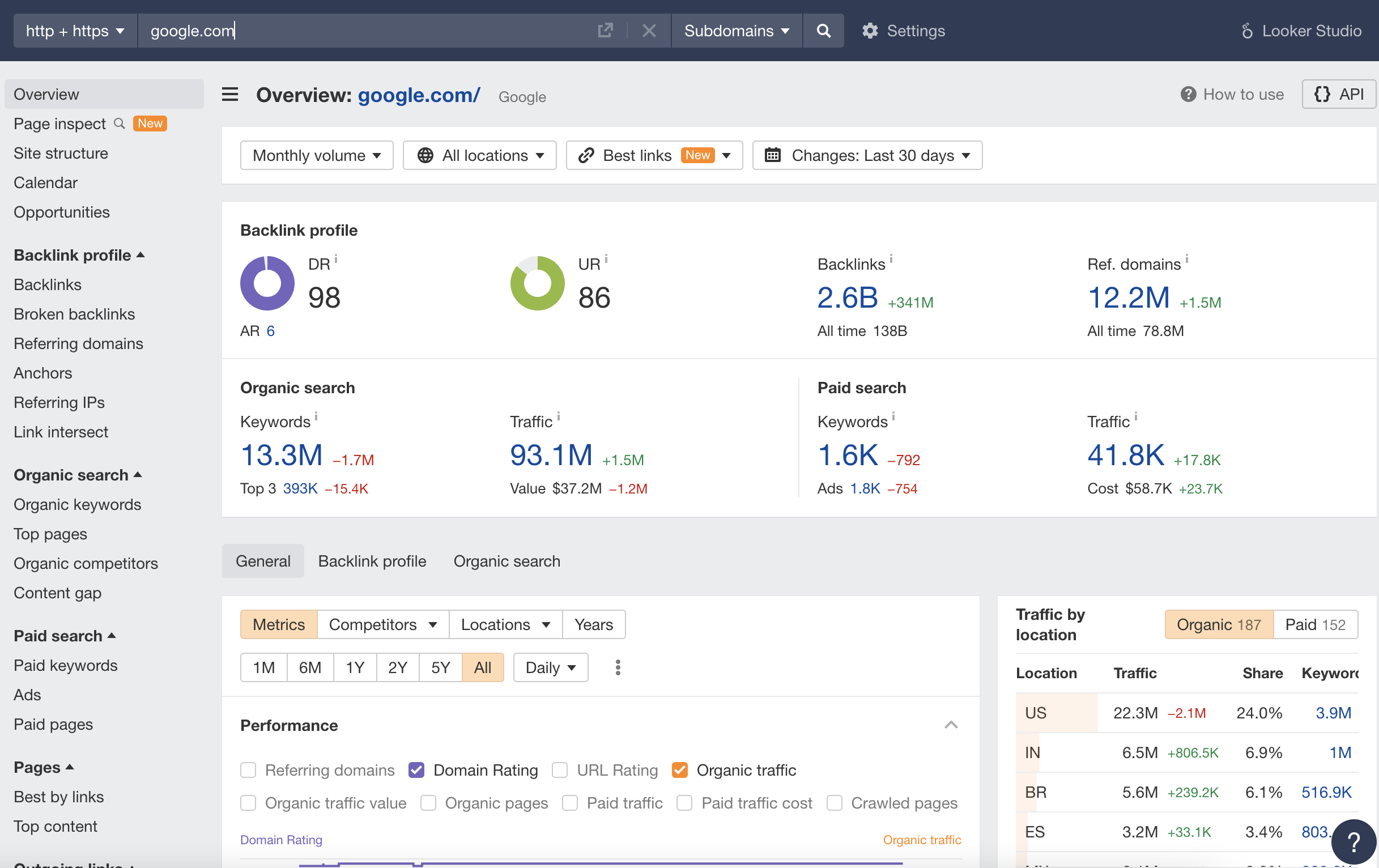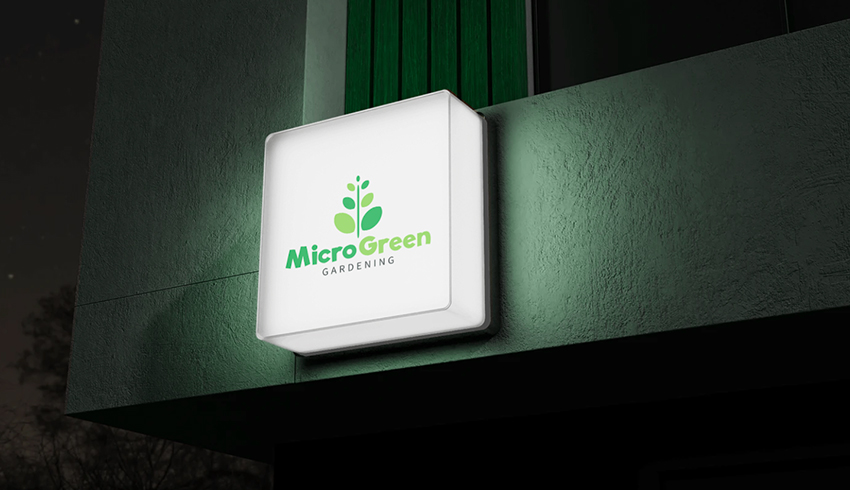If you're running a small business, being visible online is key to success in the digital age. Getting into SEO(Search Engine Optimization)might sound complex, but it's just about making your website easy for people (and Google) to find. This guide is here to break down the SEO basics for you, so you can start boosting your website's spot on the search results and pull in more customers without feeling overwhelmed.
What is SEO
SEO (Search Engine Optimization) is about making your website more visible and appealing to search engines like Google. And google is responsible for most of the search engine traffic in the world. The goal of SEO is simple: rank higher in search results (SERPs) when people look for things related to your business. Good SEO practices can significantly improve your website's visibility, attract more organic traffic, and enhance your online presence.
Why is SEO important for you?
SEO optimization is essential for your business because it directly impacts your online success. It boosts your visibility in search engine results, ensuring that your website appears when potential customers search for products or services related to your business. This targeted visibility not only increases exposure but also brings in high-intent traffic, increasing the likelihood of conversions.
Furthermore, SEO enhances your credibility and trustworthiness in the eyes of users. Websites that consistently rank well are seen as authoritative sources in their industry, strengthening your brand's reputation. Beyond cost-effectiveness, SEO allows small businesses to compete on a level playing field with larger companies in the digital arena. It's not just about search engine rankings; it's about improving the user experience and providing valuable information. In summary, SEO is a strategic investment that drives visibility, credibility, and competitiveness, making it a vital part of your business strategy. Investing in professional SEO services can significantly enhance your online visibility, ensuring that potential customers find your business when searching for relevant products or services.
Here Are The Essential SEO Basics You Should Know
Now, let's dive into the fundamental SEO techniques and strategies that can boost your website's traffic from search engines.
Keyword Research

Keyword research forms the bedrock of a successful SEO strategy. To pinpoint the ideal keywords for your small business, you need to delve into the minds of your target audience and comprehend their search behaviors. Utilize tools like Google's Keyword Planner, SEMrush, Ahrefs, or some other rank tracker to unearth keywords that strike the right balance: they should be relevant to your offerings, boast a healthy search volume, and feature moderate to low competition levels. When embarking on keyword research, keep these factors in mind:
Relevance: Pick keywords closely tied to your products or services.
Search volume: Set your sights on keywords that with high monthly search volumes.
Competition: Opt for keywords with lower competition, as this paves the way for easier ranking.
On-Page SEO
After pinpointing your target keywords, the next step is to optimize the content on your website. On-page SEO involves optimizing individual web pages, ensuring consistency in brand identity across all pages, Here's a breakdown of essential elements to focus on:
Title Tags: Craft unique and descriptive title tags for each page, ensuring they incorporate your chosen keywords.
Meta Descriptions: Create compelling meta descriptions that accurately depict your page's content while including your target keywords.
Header Tags (H1, H2, H3): Utilize header tags to structure your content effectively, improving readability for both users and search engines.
URL Structure: Maintain concise and descriptive URLs that integrate your target keywords.
Image Optimization: Optimize images by providing descriptive file names and alt tags. Additionally, compress images to enhance loading speed.
Content Creation
To create a memorable brand, it's important to create high-quality content that genuinely connects with your audience, addressing their needs and sparking their interest. Additionally, you might find it beneficial to explore various methods to expand your content's reach, including utilizing proxy services like from Proxy Cheap to reach diverse audiences. This content can take various forms, including blog posts, articles, videos, infographics, and more. As you embark on content creation, consider the following guidelines:
Keyword Integration: Naturally insert your target keywords into your content, avoiding the pitfall of overloading with keywords.
Readability: Ensure your content is easily comprehensible by using straightforward language and well-structured formatting. Utilizing tools like ParaphraseTool.ai can help refine complex sentences, enhance flow, and maintain your message’s clarity, ultimately improving reader engagement. When doing winning SEO for news websites, you should also focus on timely content updates and leveraging trending topics to maintain relevance and attract a broader audience.
Link Strategy: Implement both internal and external links judiciously. Link to other relevant pages within your website and reputable external sources.
Technical SEO
Technical SEO revolves around the behind-the-scenes elements of your website that impact its search engine visibility. Focusing on these technical SEO aspects ensures that your website operates seamlessly and is more appealing to both users and search engines. These encompass:
Site Speed: Streamline your website for swift loading, as Google considers page speed a ranking factor.
Mobile Optimization: Guarantee that your website is responsive and renders correctly on mobile devices.
XML Sitemaps: Develop an XML sitemap to assist search engines in navigating and indexing your site more effectively.
404 Error Resolution: Rectify any broken links or 404 errors present on your website to enhance both user experience and search engine crawling.
Link Building

Acquiring high-quality backlinks for your website is a vital SEO practice, as it can enhance your domain authority and boost your rankings in search results. To achieve this, concentrate on obtaining links from trustworthy websites within your field or sector. Here are effective link-building strategies tailored for small businesses:
Guest Blogging: Contribute valuable content to relevant blogs in your industry, incorporating a link leading back to your website.
Partnerships: Collaborate with other businesses in your niche to develop content or joint projects that can earn you valuable backlinks. Besides guest collaboration, niche editing is the most fruitful link building practice. Majority of the SEO professionals prefer to buy niche edit links rather than spending time and effort in other less important link building techniques. After purchasing links, ensuring you have a professional invoice is essential. Invoice Templates for Microsoft Word can help by providing ready-to-use formats for seamless invoicing.
Social Media Promotion: Leverage social media platforms to share your content, increasing its visibility and potentially attracting organic backlinks.
Make your own logo in seconds!
Try It NowMake your own logo in seconds!
Try It Now
International, and local SEO
International SEO and Local SEO are two distinct yet crucial strategies to consider for your online presence.
International SEO: When targeting multiple countries or languages, it's essential to understand the benefits and trade-offs of different approaches to ranking. Aleyda Solis provides an excellent guide to international SEO best practices for expanding your reach to global markets. Google also offers recommendations in their own guide. International SEO involves tailoring your website to appeal to audiences in various countries and languages.
Local SEO: For small businesses with a local customer base, local SEO is a must. It's all about optimizing your website to rank higher in local search results. Key components of local SEO include optimizing your Google My Business listing with accurate information, building local citations for consistent business details, encouraging customer reviews on platforms like Google My Business, and incorporating location-specific keywords into your content. Local SEO is vital for attracting customers in your specific area.
Monitoring and Analysis

SEO is an ongoing journey, and it's vital to keep a close eye on your website's performance while making necessary adjustments. Utilize tools such as Google Analytics, Google Search Console, and other modern SEO tools to monitor metrics like website traffic and rankings. Regularly analyze this data to identify areas that require improvement and to gauge the effectiveness of your SEO efforts.
To measure the success of your SEO strategy, consider setting up goals or e-commerce tracking in tools like Google Analytics. This allows you to assess organic traffic and conversions on specific landing pages, providing insights into how well your website is performing in terms of attracting and converting visitors from organic searches. To further streamline your monitoring efforts, integrating data from Google Search Console to BigQuery can provide deeper insights into your SEO performance and help you analyze key metrics at scale. Many people wonder how to do my powerpoint presentation for the SEO performance report. Providing the necessary data can help ensure clear communication of these metrics and insights. With patience, persistence, and a commitment to SEO best practices, your small business can harness the benefits of a well-executed SEO strategy, gaining a competitive edge and reaching your target audience effectively.









